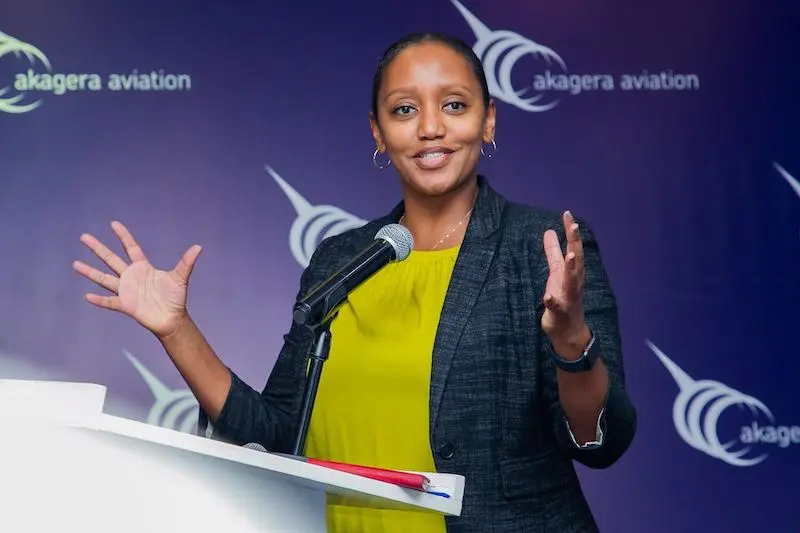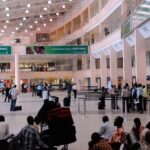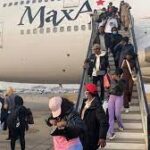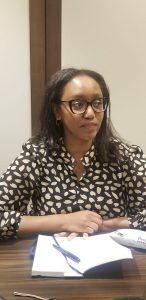
CEO of Rwand Air, Yvonne Manzi Makolo has urged African governments to do everything possible to boost intra Africa travel by removing all barriers to connectivity from one country to another across the continent.
Makolo who is also the Chair of the International Air Transport Association (IATA), said African airlines need partnerships to help them effectively connect to every part of the continent and beyond.
“I think it is very important, and especially need to connect the continent to the level that we need to. Partnership both amongst the African airlines and the international partners is key. African airlines have a lot to offer. Yes, for some airlines, a lot more needs to be done but we still have a lot to bring to the table. Partnering with African airlines gives also the international partners a way to access the market and for us to access the international market as well. So, it is key for us, and that is why I said I would really like to show a different face of African aviation,” she said.
She expressed support for Single Africa Air Travel Market (SAATM) that will ensure aviation plays a major role in connecting Africa, promoting its social, economic and political integration and boosting intra-Africa trade and tourism as a result. SAATM will also open up Africa’s skies and promote the value of aviation throughout the continent. Open air arrangements boost traffic, drive economies and create jobs, she said.
Makolo noted that connectivity within Africa had been a bit challenging, adding that to ameliorate the challenge, several bodies like EU, IATA have talked about SATAAM, but regretted that there were still too many diplomatic restrictions hindering the actualisation of SAATM.
“SATAAM is a no brainer because when you say you want to grow aviation in Africa, there is no way that can happen with all these restrictions, in terms of very restrictive passes where they dictate the type of aircraft that you are going to use, which points you are going to enter, whether they give you 5th freedom or not, frequencies that you are going to operate. That just will not work. We have been talking about SATAAM for a very long time, since I joined the industry but it has been the number one topic. What I am happy about is the fact that a decision has been made tostart with the pilot countries. Because right now I think the countries are about 45 that are signatories to it, but even the ones that have signed up to it are not necessarily implementing it. so the ones who are ready to actually implement can start and hopefully when other countries see the benefits they will jump on board. But beyond SATAAM, we also can talk about Open Skies but then we have closed borders. We need to look at the visa regime withing the Africa continent and how we are making it so difficult for people to move within the continent. So that goes hand in hand. I am hoping with the pilot phase, we will see some tangible results and a lot more countries will be willing to open up and move away from the whole protectionism mindset,” Makolo said.
She said that the cost of operating in Africa is relatively very high.
“The cost of operating an airline within the African continent is a lot more, whether it is fuel, whether it is airport charges, parking, landing and navigation, everything is more expensive within the African context. Even in terms of labour, especially skilled labour, pilots, we have to bring expatriate pilots which comes at a premium as well. So, the cost of doing business within the continent is a lot higher which puts us at the back foot compared to other regions,” Makolo said.
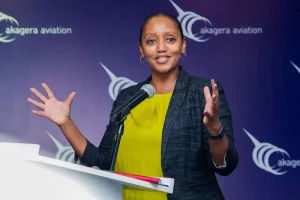
She described theNigerian market as huge market, which RwandAir is interested in and hopes to get more involved in.
“The Nigerian market is a key market for us. For Rwand Air, it is the biggest market after Rwanda and it is growing. But the biggest challenge we face right now with Nigeria which is limiting our operations there is repatriating our money. So, we have a lot of money stuck in the country which is significant. And for a small and medium size airline like ourself, that really put a strain on our cash flow. So that also constrain what we can do within the market because ideally, we should be flying not only daily but maybe double daily. But we are not able to do that because, when are we going to really get our money out? So we had to shrink a bit of our operations both to Lagos and Abuja. But we hope that once this issue is resolved, we can really go all out and capture that market. Because it is a strong market, so we are looking forward to growing our presence there. And the same thing within the African continent, the potential is huge, there are still a lot of markets which are not served well, so we are looking forward to fill in those gaps. Now even with the implementation of the Africa Free Trade Area, the potential grows even more. So we are really focused on really connecting Rwanda to the rest of the African countries and beyond the continent,” the Rwand Air CEO said.
However, with the floating of the naira there is likely to be an end to trapped funds, as the country will henceforth have single exchange rate.


